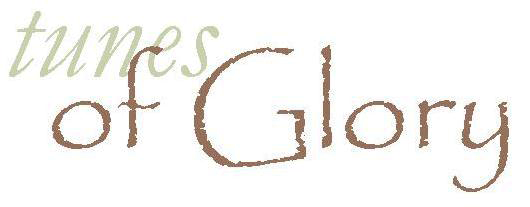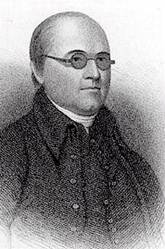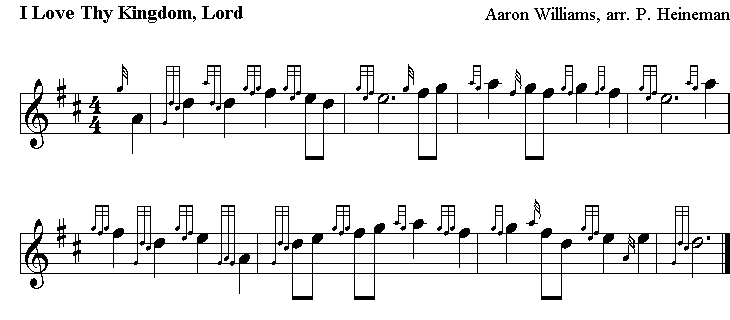 |
||||||

Best viewed in
|
I Love Thy Kingdom, Lord
On news of his father's death in the fall of 1778, he resigned his commission and returned to take charge of his family in Northampton. Besides managing the family's farms, he preached and taught, establishing a school for both sexes. During this period, he served two terms in the Massachusetts legislature. Dwight was the leader of the evangelical "New Divinity" faction of Congregationalism -- a group closely identified with Connecticut's emerging commercial elite. Although fiercely opposed by religious moderates -- most notably Yale president Ezra Stiles -- he was elected to the presidency of Yale on Stiles's death in 1795. His ability as a teacher, and his talents as a religious and political leader, soon made the college the largest institution of higher education in North America. Dwight had a genius for recognizing able protégés -- among them Lyman Beecher, Nathaniel W. Taylor, and Leonard Bacon, all of whom would become major religious leaders and theological innovators in the ante bellum decades. During troubled times at Yale University, then-president Timothy Dwight saw his students drawn to the radical republicanism and “infidel philosophy” of the French Revolution, including the philosophies of Hume, Hobbes, Tindal, and Lords Shaftesbury and Bolingbroke. Between 1797 and 1800, Dwight frequently warned audiences against the threats of this “infidel philosophy” in America. An address to the candidates for the baccalaureate in Yale College called "The Nature and Danger of Infidel Philosophy, Exhibited in Two Discourses, Addressed to the Candidates for the Baccalaureate, In Yale College" was delivered on September 9, 1797. It was published by George Bunce in 1798. This book is credited as one of the embers of the Second Great Awakening. Dwight was well known as an author, preacher, and theologian. He and his brother, Theodore, were members of a group of writers centered around Yale known as the "Hartford Wits." In verse, Dwight wrote an ambitious epic in eleven books, The Conquest of Canaan, finished in 1774 but not published until 1785, a somewhat ponderous and solemn satire, The Triumph of Infidelity (1788), directed against David Hume, Voltaire and others; Greenfield Hill (1794), the suggestion for which seems to have been derived from John Denham's Coopers Hill; and a number of minor poems and hymns, the best known of which is that beginning "I love thy kingdom, Lord".
Lyrics by Timothy Dwight
|
|||||

